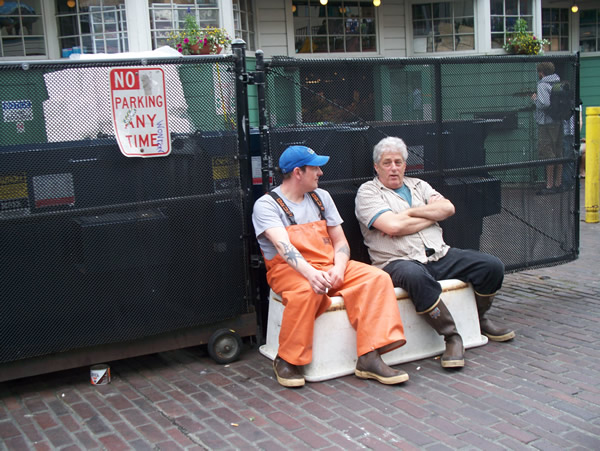 I’d like you all to pause for a moment, you wretched weaklings, and take stock of your miserable existence. That was the advice that St. Benedict gave his followers and the advice I decided to follow when I turned 40. Until then I had been working too much and neglecting the family. I decided to turn my life around and address the thorny issue of work-life balance.
I’d like you all to pause for a moment, you wretched weaklings, and take stock of your miserable existence. That was the advice that St. Benedict gave his followers and the advice I decided to follow when I turned 40. Until then I had been working too much and neglecting the family. I decided to turn my life around and address the thorny issue of work-life balance.
—-
This is a summary of a tedtalk.
Listen to the talk: www.ted.com/talks/nigel_marsh_how_to_make_work_life_balance_work
—-
I’ve since been studying and struggling with the issue and have 4 things to share:
The first is that if society is to make any progress on this issue, we need an honest debate. All the discussions about flexitime, paternity leave and dress down Fridays only serve to mask the core issue; which is that certain career choices are fundamentally incompatible with being meaningfully engaged on a day-to-day basis with a young family. In order to solve a problem, the reality of the situation must be acknowledged and there are thousands of people out there leading unhappy lives.
The second observation I’d like to make is that governments and corporations aren’t going to solve this problem for us. It’s up to us as individuals to take responsibility for the types of lives we want to lead. If you don’t design your life, someone else will design it for you. Companies are inherently designed to get as much out of you as they can get away with, we have to be responsible for setting and enforcing the boundaries we want in our life.
The third observation is that we have to be careful with the time frame we use to judge our balance. We need to be realistic, you can’t have your perfect day every day. We need to elongate the time frame with which we judge the balance in our life bt without falling into the trap of thinking we’ll have a life when we retire. A day is too short, after retirement is too long: there’s got to be a middle way.
The fourth is that we need to approach balance in a balanced way and not let it be dominated by work. An incident happened a couple of years ago that gave me a new perspective. My wife, who is somewhere in the audience today, called me up at the office and said, “Nigel, you need to pick our youngest son” — Harry — “up from school.” Because she had to be somewhere else with the other three children for that evening. So I left work an hour early that afternoon and picked Harry up at the school gates. We walked down to the local park, messed around on the swings, played some silly games. I then walked him up the hill to the local cafe, and we shared a pizza for two, then walked down the hill to our home, and I gave him his bath and put him in his Batman pyjamas. I then read him a chapter of Roald Dahl’s “James and the Giant Peach.” I then put him to bed, tucked him in, gave him a kiss on his forehead and said, “Goodnight, mate,” and walked out of his bedroom. As I was walking out of his bedroom, he said, “Dad?” I went, “Yes, mate?” He went, “Dad, this has been the best day of my life, ever.”
Now my point is the small things matter. Being more balanced doesn’t mean dramatic upheaval in your life. With the smallest investment in the right places, you can radically transform the quality of your relationships and the quality of your life. Moreover, I think, it can transform society. Because if enough people do it, we can change society’s definition of success away from the moronically simplistic notion that the person with the most money when he dies wins, to a more thoughtful and balanced definition of what a life well lived looks like. And that, I think, is an idea worth spreading.
———
Have something to say? Comment on it at the bottom of the article.
This talk has been summarized by Robyn Darbyshire

Leave a Reply